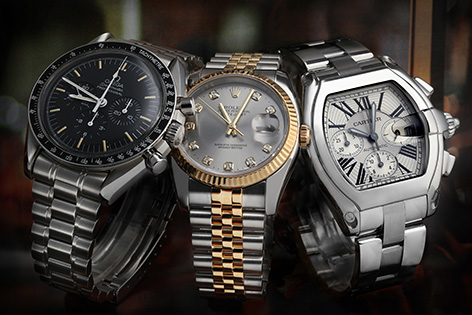In a world increasingly dominated by digital wearables and smartwatches, one might wonder: are traditional timepieces still relevant? The answer is a resounding yes—especially when it comes to Swiss Made watches. In 2025, these iconic timepieces continue to set the benchmark for craftsmanship, precision, and prestige. Far from being relics of the past, Swiss watches remain the gold standard, thanks to a blend of heritage, innovation, and enduring appeal.
Unmatched Craftsmanship and Tradition
Swiss watchmaking dates back to the 16th century, and that legacy is still very much alive today. Every “Swiss Made” label isn’t just a mark of origin—it’s a certification of superior craftsmanship. To qualify, a watch must meet strict criteria including Swiss movement, final assembly in Switzerland, and 60% of production costs incurred domestically. This ensures that every piece is a product of meticulous engineering, handcrafted detail, and time-tested methods passed down through generations.
While smartwatches offer temporary tech benefits, Swiss watches offer something far more lasting—heritage and artistry. Brands like Rolex, Patek Philippe, Omega, and TAG Heuer continue to uphold centuries-old values, making each piece a collector’s item and a family heirloom.
Timeless Luxury and Status
In 2025, wearing a Swiss Made watch is not just about telling time—it’s a statement of identity. These watches symbolize success, sophistication, and attention to detail. A luxury smartwatch may be sleek, but it lacks the soul of a Swiss automatic with an exhibition case back revealing a finely decorated movement.
Swiss watches also maintain their value far better than digital alternatives. While technology becomes outdated in a matter of years, Swiss timepieces often appreciate in value over time, especially limited editions and vintage models. This positions them not only as fashion statements but also as long-term investments.
Innovation Meets Tradition
Swiss watchmakers aren’t stuck in the past—they are innovating while honoring tradition. In recent years, we’ve seen the rise of hybrid models that integrate smart functions with traditional mechanical movements, like TAG Heuer’s Connected series or Tissot’s T-Touch Connect Solar. These watches offer tech-savvy features without sacrificing the elegance and build quality that define Swiss craftsmanship.
Moreover, the industry has embraced sustainable practices, with brands like Oris and IWC incorporating eco-friendly materials and reducing carbon footprints. In this way, Swiss watchmakers remain forward-thinking without losing their identity.
Emotional and Experiential Value
Finally, Swiss watches offer something no smartwatch can replicate: emotional connection. The feeling of winding a mechanical movement or hearing the subtle tick of a Swiss quartz is a tactile, emotional experience. These watches often mark milestones—graduations, anniversaries, promotions—and become cherished parts of life stories.
In 2025, Swiss Made watches continue to reign as the gold standard in the world of horology. While smartwatches may win on convenience, Swiss watches triumph in legacy, craftsmanship, and emotional value. They aren’t just timekeepers—they’re timeless treasures.
